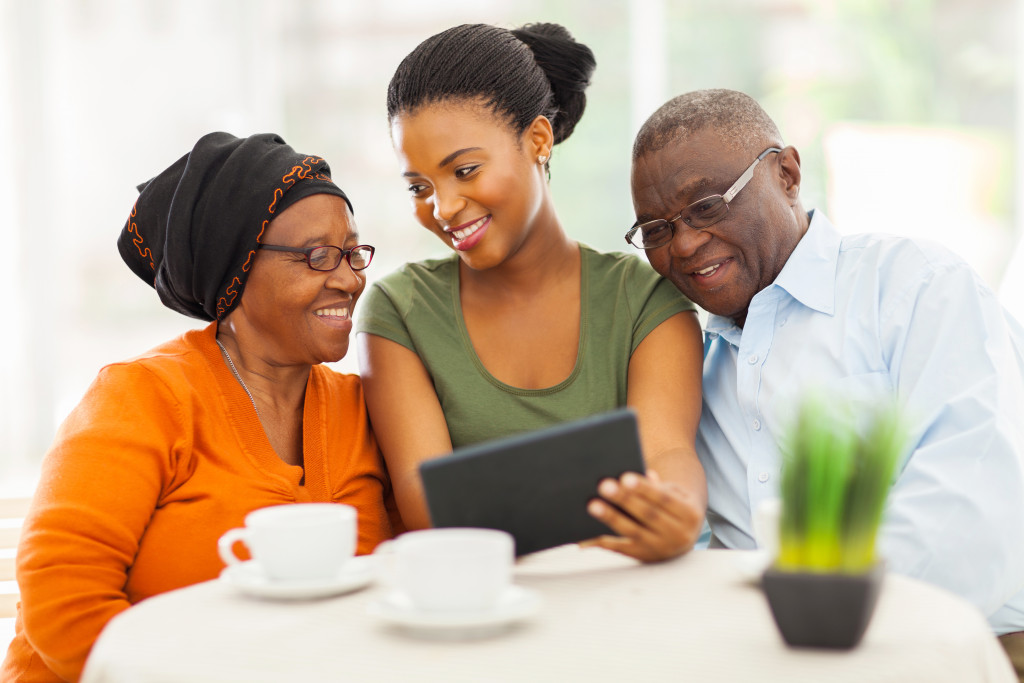It can be challenging to take care of elderly loved ones, especially when it comes to ensuring their safety and health. You need to consider many things, and it can be tough to know where to start.
Not only do you have to worry about them staying healthy and safe, but you also have to make sure they have everything they need daily. Therefore, you need to make sure that your elderly loved ones are comfortable and safe in their own home all the time. That way, you can rest easy knowing nothing adverse can happen to them.
Suppose either of your elderly parents is suffering from signs of dementia. It can be hard to take care of them on your own, and it’s best to get a full-time caregiver. Thankfully, at-home Alzheimer care and other elderly home care services can help you help your parents live better lives.
Keeping Elderly Individuals Safe, Healthy, and Happy
There are many home safety tips for elderly individuals that you can follow to keep them safe and healthy. One of the most important is to make sure they have plenty of sunlight and fresh air. Older adults need around eight hours of sleep every day, so make sure their bedroom is dark and quiet. You should also install a smoke detector and carbon monoxide detector in their home. This way, you’ll be alerted if there’s a fire or gas leak.
With that in mind, here are more tips on how to keep your elderly loved ones safe and healthy:
1. Invest in Home Improvement and Renovation Projects
Another critical thing to keep in mind is that elderly individuals are more prone to falls. Ensure they don’t have any loose rugs or cords on the floor and install grab bars in the bathroom and shower. You will need to pay for home improvement or renovation projects like these if you want to keep your elderly loved ones safe.
By making their homes safer and more accessible, they will be less prone to accidents and injuries. This means that they can move around more confidently because they know they’re in a safe place to live.
2. Keep Elderly Loved Ones Healthy
In addition to making their home safer, you also need to focus on making sure they are as healthy as possible. This means ensuring that they get enough exercise and eat a balanced diet. It’s also essential to monitor them for any signs of illness or dementia.
For a healthy diet, you need to incorporate plenty of fruits, vegetables, and whole grains. You should also make sure they are getting enough protein and healthy fats. Make sure that they stay hydrated and avoid sugary drinks and processed foods.
Exercise is also crucial for elderly loved ones. They need to be active to maintain their muscle mass, strength, and balance. Try to encourage them to do at least 30 minutes of exercise per day. This can include activities such as walking, swimming, or even dancing.
It’s also important to keep an eye on elderly loved ones for any signs of illness or dementia. If you notice any changes in their behavior, mood, or physical health, be sure to consult a doctor. Early diagnosis and treatment are key for both illnesses.

3. Ensure They Are Taking Their Medications
Almost all elderly individuals these days have to take medications to stay healthy. They mustn’t miss any doses and take the correct medications. You may need to help them keep track of their prescriptions or ask the doctor if an app or medication reminder system can help.
You should also make sure their medications aren’t expired and you keep them in a cool, dry place. This way, you can be sure they’re taking the medicines as prescribed and that they won’t expire.
4. Check Their Living Environment Regularly
It’s important to regularly check on elderly individuals living at home alone, especially if they cannot get around quickly. Are there any tripping hazards in the house? Is anything blocking their path from one room to another?
By regularly checking their living environment, you can help to keep them safe and healthy all the time. If you’re elderly loved one lives alone, it’s essential to have a safety plan in place in an emergency. This means having a list of people they can call for help and knowing where the nearest hospital is. You should also ensure they know how to use the phone and have a list of essential numbers saved in their contacts.
Elderly individuals need to take extra precautions to stay safe and healthy at home. However, they cannot do this on their own. Therefore, caregivers, family members, and friends need to help out and provide support. The tips above will help get you started.




